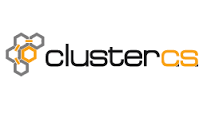Description

Bigrock

Cluster CS
Comprehensive Overview: Bigrock vs Cluster CS
Bigrock and Cluster CS are two distinct entities that serve different functions within the web hosting and cloud management sectors. Here's an overview of each in terms of their primary functions, target markets, market share, and differentiating factors:
Bigrock
a) Primary Functions and Target Markets
- Primary Functions: Bigrock is primarily a domain registration and web hosting company. They offer a range of services, including domain registration, web hosting (shared, VPS, reseller, and dedicated hosting), email hosting, website builder tools, and SSL certificates.
- Target Markets: Bigrock primarily targets small to medium-sized businesses (SMBs), entrepreneurs, and individuals looking to establish an online presence. Their services are suitable for those needing easy, reliable, and cost-effective web solutions without extensive infrastructure needs.
b) Market Share and User Base
- Bigrock is a well-known name in the Indian and broader Asia-Pacific web hosting market, although it does not hold a dominant global position compared to giants like GoDaddy or Bluehost. Its strength lies in its competitive pricing and localized marketing strategies in its primary regions of operation.
c) Key Differentiating Factors
- Localized Support: Bigrock often provides localized customer support, which is beneficial for Indian customers seeking tailored services.
- Pricing: Known for competitive pricing and frequent promotional offers that appeal to cost-sensitive customers.
- Ease of Use: Bigrock offers user-friendly tools, making it easy for beginners to set up their online presence without technical expertise.
Cluster CS
a) Primary Functions and Target Markets
- Primary Functions: Cluster CS is a cloud server management platform designed to streamline the management of cloud infrastructure. It provides functionalities such as server monitoring, backups, app deployment, and automated server scaling.
- Target Markets: Cluster CS targets developers, IT professionals, and businesses that need advanced cloud management solutions. Its clientele likely includes startups, growing tech companies, and enterprises looking to optimize and automate their cloud environments.
b) Market Share and User Base
- Cluster CS serves a more niche market compared to Bigrock, focusing specifically on cloud server management. While it does not have the expansive user base of major cloud providers like AWS or Azure, it carves out its niche by offering specialized management tools to those using these larger platforms.
c) Key Differentiating Factors
- Advanced Cloud Management: Offers a high degree of control and automation for cloud infrastructure, appealing to technically skilled users who require more nuanced solutions than general web hosting platforms can provide.
- Multi-Platform Support: Can work across various cloud providers, offering flexibility to manage infrastructures that operate on multiple cloud services simultaneously.
- Scalability: Designed to suit the needs of companies that need to rapidly scale their server infrastructure with evolving demands.
Comparison
- Functionality: Bigrock focuses on foundational online presence services (domain, hosting), whereas Cluster CS deals with advanced cloud management.
- Market Focus: Bigrock appeals to SMBs and individuals starting online, while Cluster CS targets developers and businesses with existing cloud infrastructure.
- User Expertise Requirement: Bigrock is user-friendly and approachable for beginners, while Cluster CS requires more technical expertise due to its advanced features.
In summary, while both Bigrock and Cluster CS operate within the broad realm of web services, they cater to vastly different needs and markets, making them more complimentary than directly competitive in most scenarios.
Contact Info

Year founded :
2009
+91-22-6720-9001
Not Available
India
Not Available

Year founded :
Not Available
Not Available
Not Available
Not Available
Not Available
Feature Similarity Breakdown: Bigrock, Cluster CS
As of my last update in October 2023, BigRock and Cluster CS are companies offering web hosting and server management solutions, respectively. However, detailed feature-by-feature comparisons or UI analysis information for these specific companies might not be readily available, but I can provide a generalized comparison based on typical offerings in their domains.
a) Common Core Features:
-
Domain Management: Both platforms likely provide domain management services. BigRock being a domain registrar ensures easy domain setup with hosting services, while ClusterCS might offer domain linking capabilities for server management.
-
SSL Certificates: Both are likely to provide SSL certificates as a standard feature for website security.
-
Performance Monitoring: They probably offer tools or features to monitor the performance of websites either through control panel metrics (BigRock) or server performance insights (ClusterCS).
-
Customer Support: Expect 24/7 support or knowledge base access from both to assist users.
b) User Interface Comparison:
-
BigRock: Typically, web hosting companies like BigRock offer user-friendly, straightforward control panels (such as cPanel) that allow users to manage their websites, domains, email, and related services with a focus on ease of use for those with limited technical backgrounds.
-
Cluster CS: As a server management tool, the UI might be more oriented towards providing comprehensive insights and control over server configurations, so it may be more complex and feature-rich, catering to users with more advanced tech skills.
c) Unique Features:
- BigRock:
- Domain Registration/Transfer: BigRock might offer unique promotions or extensive TLD options for domain registration and transfer, specific to the registrar market.
- Web Builder Tools: They might provide integrated website builders to help users create websites without technical skills.
- Cluster CS:
- Advanced Server Management: This could include unique features like multi-cloud server management, reverse proxies, or advanced security configurations aimed at developers or IT professionals.
- Automation Scripts: Features that allow automated deployment scripts to easily manage server tasks might set it apart.
Ultimately, for precise feature sets, user interface analysis, and unique offerings that might differentiate these platforms, it would be essential to refer to the companies' official resources or to conduct a direct evaluation through trial or user reviews.
Features

Domain Registration
Web Hosting Services
Website Building Tools
Email Hosting

User Management
Collaboration Tools
Security Features
Performance Monitoring
Integration Capabilities
Real-Time Data Analytics
Scalability and Flexibility
Enhanced Security Features
User-Friendly Interface
Project Management
Data Analytics
Best Fit Use Cases: Bigrock, Cluster CS
When evaluating Bigrock and Cluster CS, it's essential to understand their offerings and identify the best fit for various business needs. Here's a breakdown of their optimal use cases:
Bigrock
Bigrock is primarily known for its domain registration, web hosting, and related services. Here’s how it fits into different business scenarios:
a) For what types of businesses or projects is Bigrock the best choice?
-
Small to Medium-Sized Enterprises (SMEs):
- Domain Registration: Ideal for new businesses seeking an accessible platform to register domains.
- Basic Web Hosting Needs: Suited for companies needing straightforward, reliable web hosting without complex requirements.
-
Startups and Entrepreneurs:
- Website Building: Helpful for startups looking to establish an online presence quickly through easy-to-use website builder tools.
- Email Hosting: Essential for businesses that require professional email addresses associated with their domain.
-
Personal Websites or Blogs:
- Cost-Effective Solutions: Perfect for individuals or bloggers who need affordable hosting without the need for extensive resources.
-
Local or Regional Businesses:
- Localized Services: Provides services that cater to localized SEO and marketing efforts, which can be beneficial for businesses operating in specific regions.
Cluster CS
Cluster CS is a control panel and server management service, offering solutions tailored to managing complex hosting needs. Here's when it is most advantageous:
b) In what scenarios would Cluster CS be the preferred option?
-
Developers and IT Teams:
- Advanced Server Management: Best for teams that need to manage multiple servers and require automation in deployment and scaling.
- Customization and Flexibility: Suitable for those who need to customize server environments beyond the capacities of traditional control panels.
-
E-commerce Platforms:
- Scalability: Ideal for online stores that expect high traffic volumes and require scalable solutions to handle demand efficiently.
- Security Features: Preference for e-commerce sites needing robust security measures to protect sensitive data.
-
SaaS Providers:
- Complex Applications: Beneficial for software vendors providing service-based models where application stability and uptime are critical.
- Multi-Tenant Environments: Effective in managing multi-tenant applications requiring resource segregation.
-
Enterprises:
- High Availability Systems: Enterprises in need of dependable and high-availability configurations can leverage Cluster CS's automation and management features.
d) How do these products cater to different industry verticals or company sizes?
-
Industry Verticals:
- Bigrock: Primarily caters to industries that do not require highly technical solutions, such as hospitality, local services, blogging, and basic e-commerce.
- Cluster CS: Serves tech-heavy industries like IT, SaaS, large-scale e-commerce, and enterprises relying on complex infrastructure.
-
Company Sizes:
- Bigrock: Targets individual entrepreneurs, small to medium businesses due to its lower cost and ease of use.
- Cluster CS: Focuses on mid-sized to large enterprises, development teams, and businesses with sophisticated hosting needs.
Both products offer unique advantages tailored to their distinct markets, helping businesses choose based on complexity, scale, and specific requirements.
Pricing

Pricing Not Available

Pricing Not Available
Metrics History
Metrics History
Comparing undefined across companies
Conclusion & Final Verdict: Bigrock vs Cluster CS
To provide a conclusion and final verdict for Bigrock and Cluster CS, we need to analyze both products based on several factors such as features, pricing, ease of use, customer support, and scalability. Here’s an evaluation based on these categories:
a) Best Overall Value
Best Overall Value: Cluster CS
Considering all factors, Cluster CS offers a competitive edge due to its advanced cluster management capabilities and automation for web hosting environments. It's particularly beneficial for businesses or users seeking robust performance and scalable solutions. It manages to balance affordability with high-level functionality, making it a worthy investment for scalability and advanced hosting needs.
b) Pros and Cons of Each Product
Bigrock:
-
Pros:
- Affordable Pricing: Bigrock offers competitive pricing, making it attractive for small businesses or startups.
- User-Friendly Interface: Easy-to-use interface with straightforward navigation ideal for beginners.
- Comprehensive Packages: Offers a variety of hosting packages including shared, VPS, and dedicated hosting.
- Good Customer Support: 24/7 support available through various channels.
-
Cons:
- Limited Advanced Features: May not be suitable for large-scale businesses needing highly customizable or advanced server configurations.
- Performance Limitations: Could experience reduced performance during high traffic levels compared to more specialized solutions.
Cluster CS:
-
Pros:
- Advanced Scalability: Excellent for managing multiple servers and clusters, suitable for growing businesses.
- Automation Tools: Provides powerful automation for deployment and server management.
- High Performance: Optimized for performance with cloud integration and resource management.
- Enhanced Security Options: Offers robust security measures tailored to cloud environments.
-
Cons:
- Pricing: May be cost-prohibitive for small-scale users or those with simple hosting needs.
- Complexity: Can have a steeper learning curve for users unfamiliar with cluster management or advanced hosting environments.
c) Recommendations for Users
-
Small Businesses or Individual Users: If you are a small business or an individual with simple, straightforward hosting needs, Bigrock is a solid choice. It provides affordable pricing with sufficient features to meet basic website hosting needs, alongside reliable customer support.
-
Growing Businesses or Tech-Savvy Users: For those requiring advanced functionalities, such as automation, scalability, and cloud integration, Cluster CS carries more value. Businesses expecting growth or higher traffic should consider Cluster CS for its capabilities to manage and optimize multiple servers efficiently.
-
Final Recommendation:
Evaluate your specific needs, technical expertise, and budget. If initial cost savings and ease of use are key, Bigrock might be preferable. On the other hand, if you're focused on scalable architecture and long-term growth, Cluster CS will likely offer a better return on investment despite the higher cost and learning curve.




